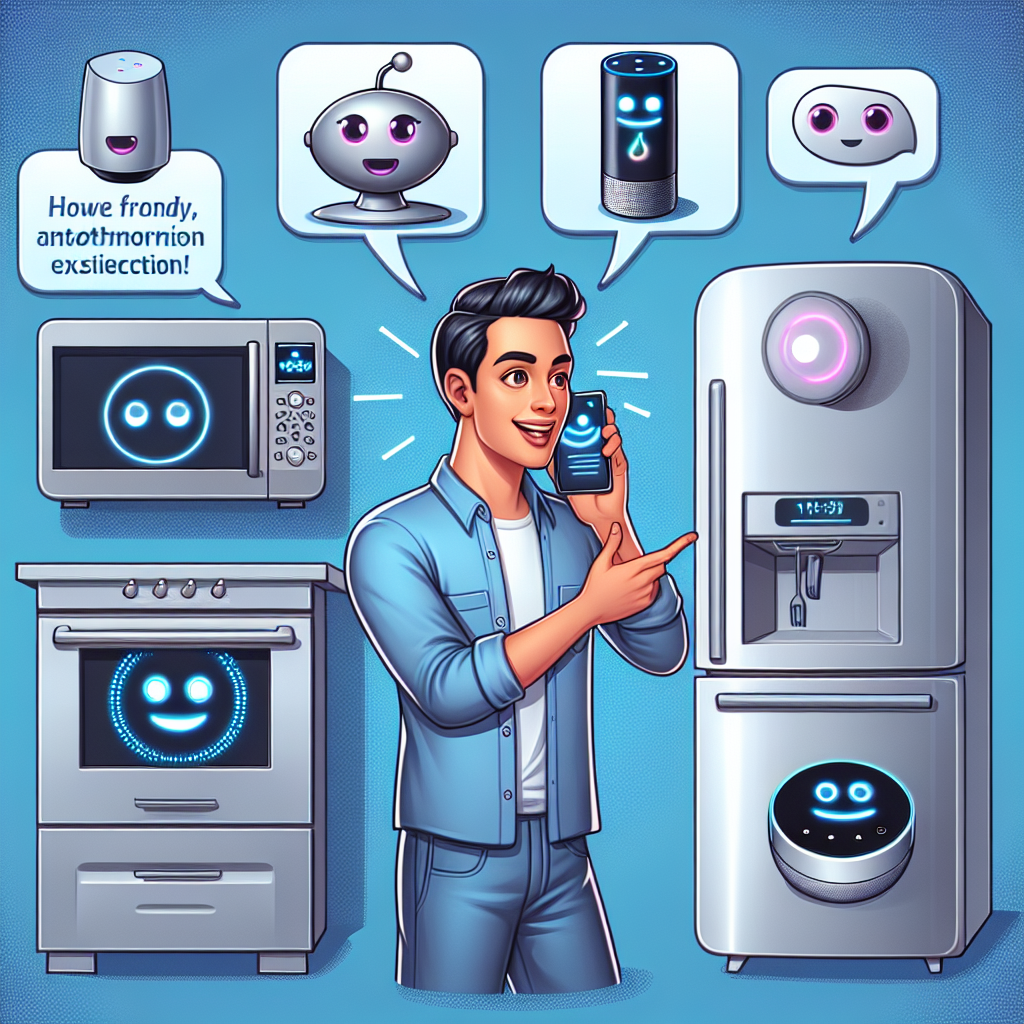In today’s rapidly evolving technological landscape, AI SaaS creation platforms are emerging as game-changers for small businesses seeking to compete in an increasingly digital marketplace. These innovative platforms are democratizing access to sophisticated artificial intelligence tools, making them accessible to organizations without dedicated IT teams or extensive technical resources. The fusion of AI capabilities with the Software-as-a-Service model has created a powerful ecosystem where personalization is not just possible but increasingly becoming the standard expectation.
Small businesses, once left behind in the technology race, can now harness AI-powered solutions specifically tailored to their unique challenges and workflows. The rise of customizable AI digital workers is revolutionizing how these businesses operate, enabling them to automate routine tasks, gain deeper insights from their data, and deliver more personalized experiences to their customers. This transformation isn’t just improving efficiency—it’s fundamentally changing how small businesses approach software solutions.
Recent statistics show that over 80% of small businesses implementing AI SaaS platforms report significant improvements in operational efficiency within the first six months. This shift represents more than just a technological upgrade; it’s a complete reimagining of what’s possible for businesses with limited resources but unlimited ambition.
The Evolution of AI-Enhanced SaaS Personalization
The real power of modern AI SaaS creation platforms lies in their ability to deliver deeply personalized experiences through sophisticated data analysis. Unlike traditional software that offers a one-size-fits-all approach, AI-driven SaaS analyzes user behavior, preferences, and patterns to create tailored experiences that evolve over time. This hyper-personalization represents a significant leap forward in how software serves business needs.
“Today’s AI doesn’t just respond to commands—it anticipates needs based on contextual understanding and historical patterns,” explains a software engineer who has implemented multiple AI solutions for small businesses. “The difference between traditional software and AI-enhanced SaaS is like the difference between a map and a GPS with real-time traffic updates—both will get you there, but one adapts to changing conditions.”
AI SaaS platforms employ several key technologies to achieve this level of personalization:
- Predictive analytics that forecast user needs and behaviors
- Natural language processing that understands user queries in conversational terms
- Machine learning algorithms that continuously improve based on user interactions
These technologies work in concert to create what industry experts call “responsive intelligence”—software that seems to understand not just what users ask for, but what they actually need. For small business owners, this means software that grows smarter alongside their business, adapting to changing market conditions and evolving customer demands.
The impact on customer satisfaction and loyalty is substantial. Research indicates that businesses using AI-personalized SaaS solutions see customer retention rates improve by an average of 25% compared to those using standard software packages. This improvement stems from the software’s ability to create experiences that feel custom-built for each user, despite being delivered at scale through a standardized platform.
Streamlining Operations with Customizable AI Digital Workers
Perhaps the most transformative aspect of AI SaaS creation platforms is their ability to implement workflow automation through customizable AI digital workers. These virtual assistants can be programmed to handle specific tasks or entire processes, working tirelessly in the background to keep business operations running smoothly.
For small business owners, the benefits are immediate and significant:
- Reduction in time spent on repetitive administrative tasks by up to 70%
- Decreased error rates in data processing and entry
- Consistent execution of processes regardless of human factors like fatigue
- Scalability without proportional increases in labor costs
A restaurant owner who implemented an AI digital worker to manage inventory and supply ordering shared: “Before implementing our AI assistant, I spent hours each week managing inventory and placing orders. Now, the system monitors stock levels, predicts what we’ll need based on historical data and upcoming reservations, and even places orders automatically. It’s like having a dedicated inventory manager who never sleeps.”
The user-friendly nature of modern AI tools is particularly important for small business adoption. Today’s low-code platforms enable non-technical users to create sophisticated workflows without writing a single line of code. Through intuitive drag-and-drop interfaces and pre-built components, business owners can design custom AI applications tailored to their specific needs.
This democratization of technology represents a significant shift in who can benefit from advanced AI capabilities. No longer restricted to enterprises with dedicated development teams, AI SaaS creation platforms are making these powerful tools accessible to businesses of all sizes. A survey of small business adopters found that 65% had no prior programming experience yet successfully implemented complex AI workflows within their operations.
Fostering Intelligent Collaboration and Market Opportunities
Beyond individual productivity gains, AI SaaS creation platforms are transforming how teams collaborate and make decisions. Intelligent collaboration tools powered by AI can analyze communication patterns, identify potential bottlenecks, and even suggest optimal team structures for specific projects.
These platforms facilitate:
- Real-time translation and transcription of meetings
- Automated summarization of discussions and action items
- Smart scheduling that accounts for individual productivity patterns
- Knowledge management systems that make institutional expertise accessible
“The AI doesn’t just record our meetings—it understands them,” notes a startup founder. “It can identify action items, assign them to team members, and follow up automatically. It’s like having an executive assistant for the entire team.”
Perhaps most exciting is the emergence of marketplaces where users can share and sell AI products they’ve created. These ecosystems allow small businesses to not only benefit from AI applications but potentially generate new revenue streams by monetizing their own innovations. A small accounting firm, for instance, might develop a specialized AI workflow for handling industry-specific tax preparations and then offer this solution to other firms through a SaaS marketplace.
This model creates a virtuous cycle where:
- Users identify specific needs within their industries
- They develop customized AI solutions using low-code platforms
- These solutions are refined through practical application
- The polished products are shared with others facing similar challenges
The result is an ever-expanding library of specialized AI applications developed by practitioners rather than software companies. These solutions often address niche problems that larger developers might overlook but that represent significant pain points for specific industries or business types.
The Future of Work: Zygote.AI’s Vision for AI-Powered Innovation
At the heart of this technological revolution is a vision for the future of work that aligns perfectly with Zygote.AI’s mission. As an AI SaaS creation platform, Zygote.AI envisions a world where anyone can turn their ideas into powerful AI applications without technical barriers. This democratization of AI development is not just about creating software—it’s about fundamentally changing how we approach problem-solving across industries.
Zygote.AI’s platform exemplifies the potential of user-friendly AI tools combined with low-code development environments. By providing customizable AI digital workers and workflows, the platform enables individual entrepreneurs, small team companies, and even technically-minded professionals to create solutions tailored to their specific needs.
The company’s philosophy centers on three key principles that reflect the broader trends in AI SaaS platforms:
- Accessibility: Making powerful AI capabilities available to non-technical users
- Customization: Providing flexible tools that adapt to specific business requirements
- Collaboration: Creating ecosystems where innovations can be shared and monetized
The ultimate goal—fully automated workflows requiring minimal human intervention—represents the next frontier in AI application development. Zygote.AI has already demonstrated this potential with workflows that autonomously select topics, generate content, create illustrations, perform reviews, and publish promotional materials without human oversight.
This vision of autonomous operation extends beyond content creation to encompass virtually any business process that can be defined and structured. From customer service interactions to complex decision-making processes, the future of AI SaaS platforms points toward increasingly sophisticated automation that augments human capabilities rather than simply replacing manual labor.
Conclusion: Embracing the AI SaaS Revolution
The transformation of small business software through personalized AI represents more than just a technological advancement—it’s a fundamental shift in how businesses can operate and compete in the digital economy. AI SaaS creation platforms are leveling the playing field, giving small businesses access to capabilities previously reserved for enterprises with substantial technical resources.
By embracing customizable AI digital workers, intelligent workflow automation, and user-friendly development tools, small businesses can achieve new levels of efficiency and personalization. The ability to create, share, and potentially monetize custom AI applications further extends the value proposition, turning technology consumers into potential technology providers.
As platforms like Zygote.AI continue to push the boundaries of what’s possible with low-code AI development, we can expect to see increasingly sophisticated applications emerging from unexpected sources. The small business owner who creates a clever automation to solve their specific challenge might inadvertently develop the next must-have tool for an entire industry.
This democratization of AI development represents perhaps the most exciting aspect of the current technological revolution. When the power to create intelligent applications extends beyond traditional software developers to include those with direct industry experience and domain expertise, innovation accelerates exponentially.
For small businesses considering their technology roadmap, the message is clear: AI SaaS creation platforms aren’t just another software category—they’re the foundation for a new approach to business operations where personalized, intelligent automation becomes a core competitive advantage. Those who embrace these tools early will find themselves not just keeping pace with larger competitors but potentially setting the standard for their industries.









